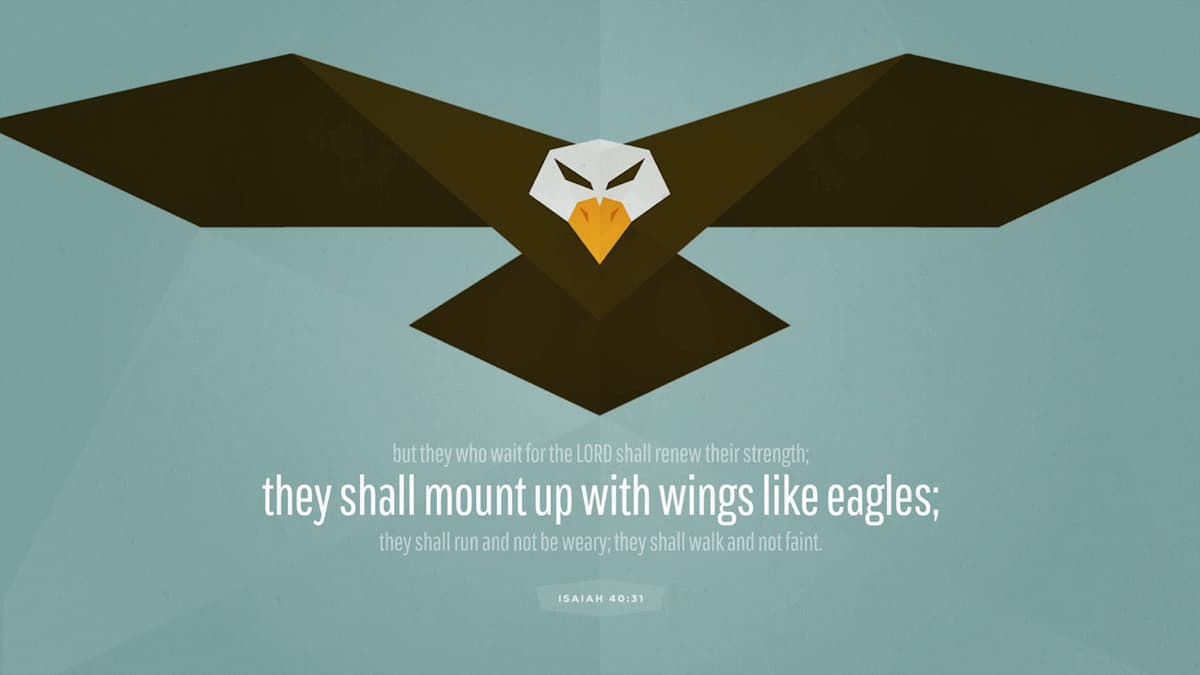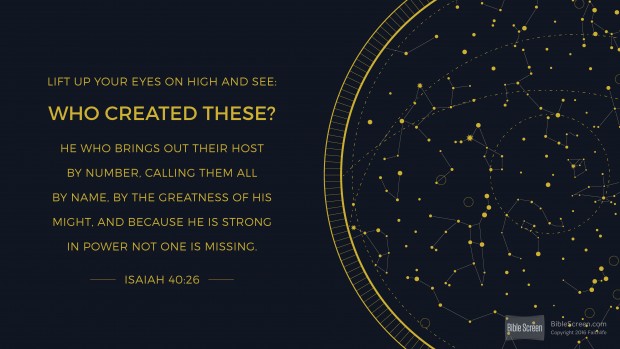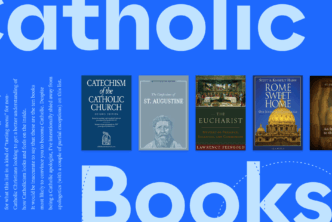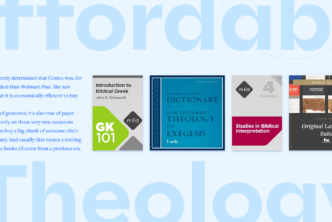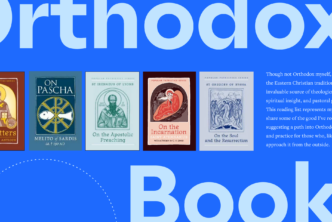You’ve seen it plastered on tee shirts, coffee mugs, bookmarks and Bible covers; it’s cross-stitched on throw pillows and wall art. Its words have comforted thousands of Christians in their darkest moments.
But do you really understand the significance of Isaiah 40:31?
They who wait for the LORD shall renew their strength;
They shall mount up with wings like eagles;
They shall run and not grow weary;
They shall walk and not faint.
Plenty of Christian merchandise is guilty of bad exegesis. It’s not that Isaiah 40:31, when taken out of context, is any more open to misinterpretation than other verses.
But with this verse, perhaps the stakes are higher. John 3:16, another beloved verse, manages to maintain its punch, even when read on its own. But when Isaiah 40:31 is taken out of context, it is robbed of of its true power.
This verse has adorned so many Christian trinkets precisely because it is powerful; the irony is that the moment it is read in isolation, it loses its impact.
In his Mobile Ed course on Isaiah, Dr. Eric Tully recovers the true power of this familiar verse by revealing its historical and literary context. By understanding this verse in context, it becomes all the more powerful, practical, and encouraging.
Strong words for a nation in struggle
In Isaiah 40, the prophet is speaking to a people in extreme distress: the nation of Judah in the midst of captivity in Babylon. This is a community roiling in disturbing questions about sin, rebellion, suffering, and God’s faithfulness to his people.
The Babylonian captivity brought an inevitable question to the lips of the ancient Israelite. “Where is God in this suffering, and will he ever rescue his covenant people from their miserable circumstance?” Isaiah’s answer is an emphatic “Yes!” (40:1–2), but according to Dr. Tully, this raises an unavoidable question.
It is one thing for Isaiah to say that Yahweh desires to deliver his people. But whether he can do that is something else. After all, it takes quite a bit of power and quite a bit of wherewithal to actually deliver a nation physically, not to mention spiritually. So, maybe it’s just a case that Yahweh has good intentions but actually isn’t able to do anything about them.
The fact that God bothers to respond at all to such questions is comfort to those of us who experience our own dark seasons of questioning, doubt, and rebellion. But through Isaiah, God does indeed respond, and he does so by proving not only his willingness to deliver his people, but his supreme ability to make good on his promise.
God is supreme over nature
To demonstrate God’s profound power and ability to deliver his people, in verses 12–14 Isaiah highlights God’s supremacy in nature. Dr. Tully summarizes:
As creator, Yahweh demonstrates his power in total understanding. Anyone can look around at the world and see the amazing thing that he’s created, and once we realize that he is the one who made those things—and he sits above them and is not even connected to them in any way—it brings to light his supremacy and power.
Through a series of rhetorical questions, Isaiah reminds his hearers of God’s absolute supremacy and power over nature. He pictures all the world’s oceans, lakes, tributaries, streams, and puddles—every ounce of moisture in the entire planet—and reduces them to a mere drip in the divine hand (vs. 12). Isaiah says that God is so immense that if he wished to weigh the mountains, he would simply pluck them from the surface of the earth and place them in scales (vs. 13).
Thus, even the most awe-inducing features of creation are minuscule when compared to God’s immensity and power. The nation of Israel was impressed by the immensity of their predicament; Isaiah wanted to impress upon them the immensity of their God.
God is supreme over the nations
Given that God’s people were suffering at the hands of the Babylonians, it’s fitting that Isaiah turns next to demonstrate God’s supremacy over the nations (vv. 15–17). Isaiah says the nations are “like a drop from a bucket” (vs. 15) and are nothing before God (vs. 17). The nations are, in fact, “less than nothing and emptiness” when compared to God.
Perhaps those nations’ gods could compare to Israel’s God? Hardly. Here’s Dr. Tully:
In verse 18, Isaiah asks the question, ‘To whom then will you liken God? Or, what likeness compare him with?’ He answers this question in a negative in verses 19-20 by saying, ‘Certainly not an idol. If you’re looking for something to compare with God, an idol isn’t going to do. That, after all is created by a person. Whereas God is supreme over nature and has created all of the world and holds the waters in the hollow of his hand, an idol is simply something that’s made by human beings and it can’t even move under its own power.’
The success and failures of nations were often attributed to the power of their gods. As Yahweh’s people suffered in captivity at the hands of a foreign power, perhaps they wondered if their God was as powerful as the gods of their foreign captors. Isaiah reminds God’s people that their God is real, and he is able to deliver them.
God is supreme over rulers
When you visit Buckingham Palace, you are impressed by a sense of history and stability. Though the palace has only been the official home of the British monarch for the last 180 years, its impressive façade, regal decorum, and fabulous gardens compel us to marvel at a monarchy that stretches back to the ninth century.
When you look at such monuments to human power, it’s easy to be impressed. And yet, Isaiah reminds us that such stability is an illusion. Even the rulers of nations are nothing when compared to Israel’s great God. After a brief return to the theme of God’s supremacy over nature in verses 21–22, Isaiah demonstrates God’s supremacy over rulers. Dr. Tully again:
In verse 24, Isaiah pivots back to the supremacy of God over the rulers of nations. ‘Scarcely are they planted’—that is, the rulers—’Scarcely sown, scarcely has their stem taken root in the earth when he blows on them and they wither and the tempest carries them off like stubble.’
Rulers seem powerful. If they are elected, it may seem like they’re going to be in the government for some time. If they are monarchs who come to the throne by birth, you know that only death will ever remove them from power. Monarchs and rulers and kings and authorities seem so powerful, so sturdy. And yet, here in verse 24, Yahweh is supreme over the rulers. Rulers just begin to take root in their political and governmental office and God simply blows on them and they wither and are like nothing before him.
God’s question for his people
In verse 25 God asks a pointed question.
To whom then will you compare me, that I should be like him?
In other words, “In light of all this, who or what in the world could ever rival God?” Nothing in creation, no ruler, and no god could ever compare to Yahweh in all his power and immensity. So Isaiah asks in verse 27:
Why do you say, O Jacob,
and speak, O Israel,
‘My way is hidden from the Lord,
and my right is disregarded by my God’?
“Why,” in other words, “Would you doubt God’s ability to deliver you?” Dr. Tully summarizes Isaiah’s point:
Isaiah’s argument is to show that Yahweh is able to save. In other words, Isaiah says to Judah, ‘Why would you suggest that Yahweh doesn’t know what is going on and doesn’t care what is happening or suggest that he is isn’t able to help? He is the great living God, supreme over the entire earth and he is able to reverse the situation and give his people hope.’
The promise of God’s deliverance
Isaiah 40:31 is the payoff to a long chapter detailing God’s immense power and supremacy. In this chapter, Isaiah considers the immensity of the ocean and the height of the mountains, and reminds God’s people, “Your God is bigger.”
He points to the most powerful leaders in the world and says, “Your God is stronger.”
He points to the gods their captors worship and says, “Your God is real.”
Why does Isaiah go through this rhetorical exercise? Because he wants to convince God’s people of Yahweh’s ability to keep the promise of verse 31.
Isaiah says, “Your God is bigger, your God is stronger, your God is real, and he is able to deliver you.”
When read in isolation, Isaiah 40:31 loses this incredible potency, the Bible verse equivalent of a hang-in-there cat. But this verse is no wish fulfillment or message of personal empowerment. The entirety of Isaiah 40 proves God’s ability to keep the promise he makes in verse 31. This is a promise banked on the immense credit of God’s strength, will, and faithfulness. When you read this familiar verse in context, there can be no doubt: the God who made this promise is able to keep it.
They who wait for the LORD shall renew their strength;
They shall mount up with wings like eagles;
They shall run and not grow weary;
They shall walk and not faint.
***
Get Dr. Tully’s Mobile Ed course on Isaiah and save. Dr. Tully will walk you through the major themes of the book of Isaiah and connect its teaching to the Christian life. This seminary-level course provides an excellent framework for your personal Bible study or sermon preparation. Learn more about this course.

